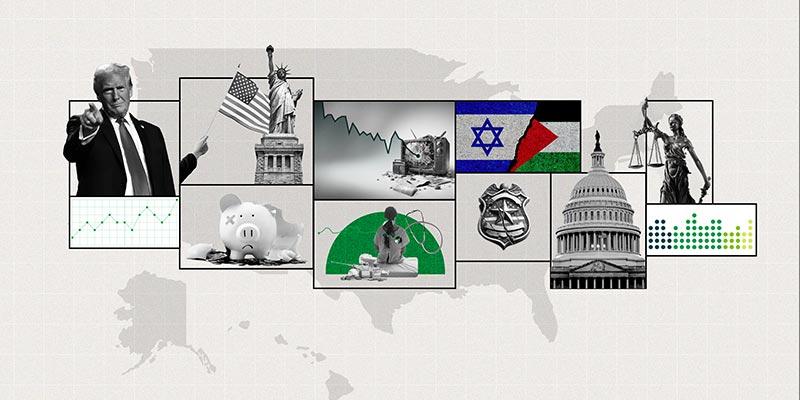PRINCETON, NJ -- Americans widely approve of Barack Obama's decisions, announced on Monday, to name Hillary Clinton secretary of state and to ask Robert Gates to stay on as secretary of defense.

These results are based on a one-night USA Today/�鶹��ýAV reaction poll conducted Dec. 1, just after Obama announced his national security team.
During the recent period of speculation that Obama would appoint his chief rival for the Democratic presidential nomination as his secretary of state, a found a majority of Americans (57%) in favor of him making that choice. Now that he has officially named Clinton as the nation's top diplomatic official, the percentage that supports the move has risen closer to 70%.
Support for the Gates appointment is higher than for the Clinton selection primarily because Republicans are much more likely to approve of Gates serving as secretary of defense than they are of Clinton as secretary of state. That, no doubt, reflects the fact that Gates has served under Republican presidents in the past, including both George W. Bush and George H.W. Bush. Democrats are slightly more likely to approve of the Clinton choice, but think highly of both choices.

At a more basic level, 78% of Americans approve of the way Obama is handling his presidential transition, with only 13% disapproving. A majority of Democrats (94%), independents (79%), and Republicans (57%) say they approve.
That overall 78% approval rating compares favorably to the reaction Americans had to George W. Bush's transition, for which an average of 63% approved in January 2001, and Bill Clinton's transition, when an average of 66% approved from November 1992 through January 1993.
One of the most frequent criticisms of Obama's staff selections is that many held key roles in Bill Clinton's administration. To some, that does not reflect the "change" that Obama promised to deliver if elected. Nevertheless, Americans view the Obama-Clinton connection in positive terms, with a slim majority believing Obama's government will be "more effective" with the former Clinton officials in key positions. Only 14% say it will make his government "less effective," and 28% believe it will "not make much difference".
Democrats seem particularly unfazed by the number of former Clinton officials in the new administration, as only 3% say his government will be less effective as a result. The vast majority of Democrats say it will be more effective (77%). Republicans are most likely to believe Obama will be poorly served by the former Clinton staffers (28%), but the plurality of Republicans say it will not make much difference.

Majority Favors Obama Stimulus Package
Since Obama was elected, he has promised to make the economy his top priority, and has pledged to work with his economic advisers to come up with a proposal that Congress can vote on shortly after he takes office Jan. 20. This package is expected to be large and expensive, estimated by some to have a price tag of $500 billion to $700 billion. When asked whether they would favor such a measure, 58% of Americans say they would and 33% say they would oppose it.
While Democrats largely favor this planned economic stimulus package (77%), Republicans oppose it by about a 2-to-1 margin (32% in favor, 63% opposed).

Implications
It is common for presidents to enjoy a "honeymoon period" once they take office, but that era of good will seems to begin even before the president-elect takes office. To date, Americans have largely been supportive of Obama's appointments and actions to date, and initially seem to be in favor of what is likely to be his key policy initiative once he takes office -- a large economic stimulus package.
Survey Methods
Results are based on telephone interviews with 1,010 national adults, aged 18 and older, conducted Dec. 1, 2008. For results based on the total sample of national adults, one can say with 95% confidence that the maximum margin of sampling error is ±3 percentage points.
Interviews are conducted with respondents on land-line telephones (for respondents with a land-line telephone) and cellular phones (for respondents who are cell-phone only).
In addition to sampling error, question wording and practical difficulties in conducting surveys can introduce error or bias into the findings of public opinion polls.
Polls conducted entirely in one day, such as this one, are subject to additional error or bias not found in polls conducted over several days.
